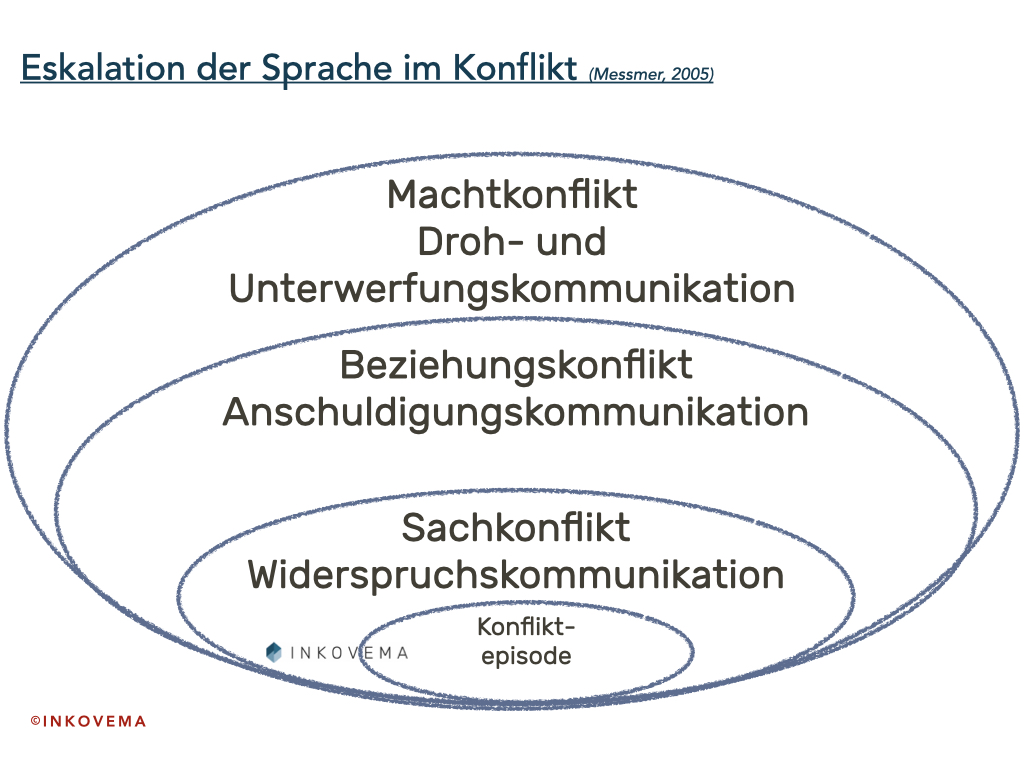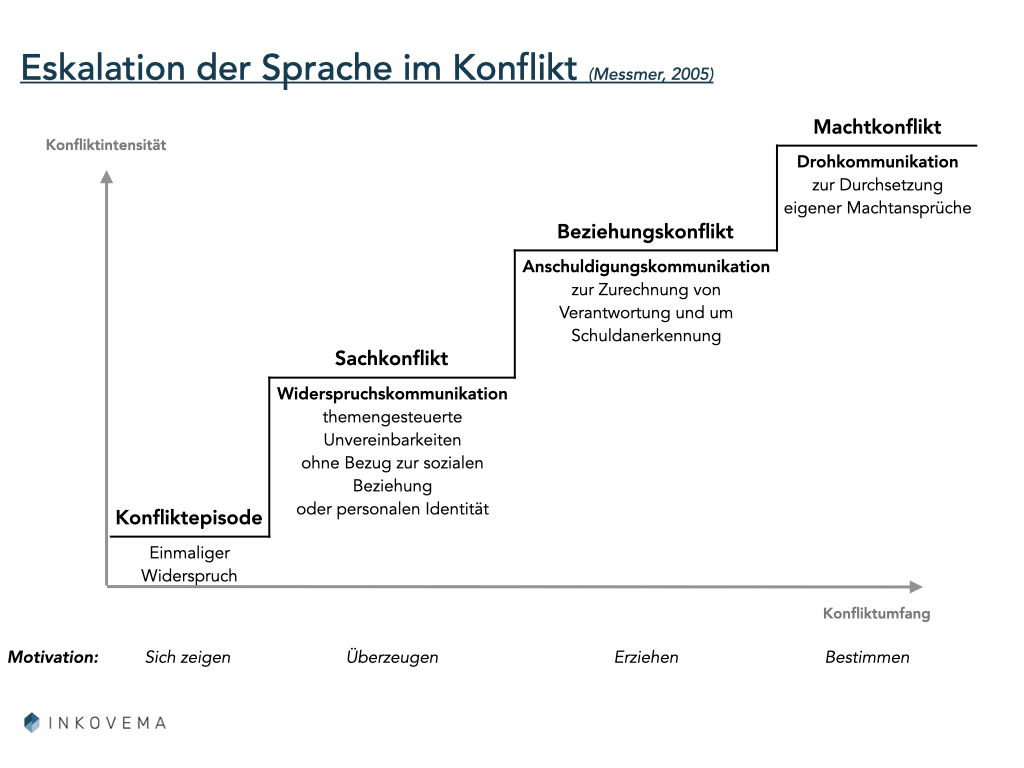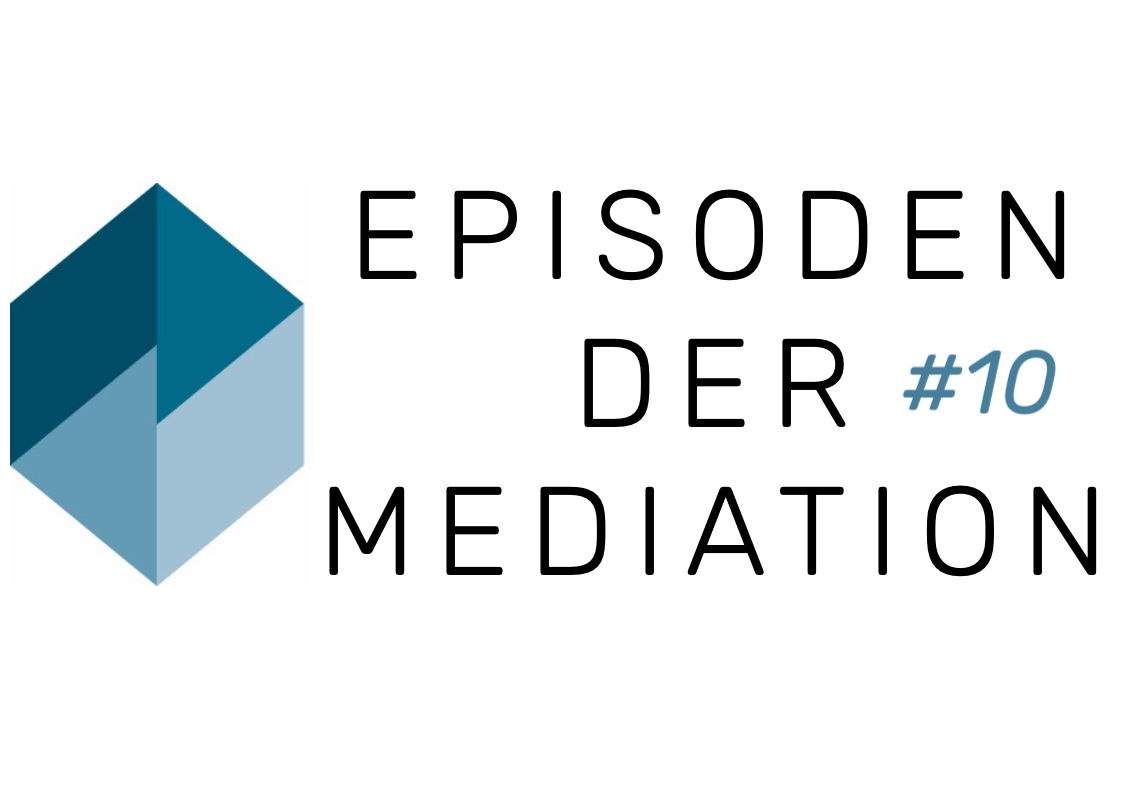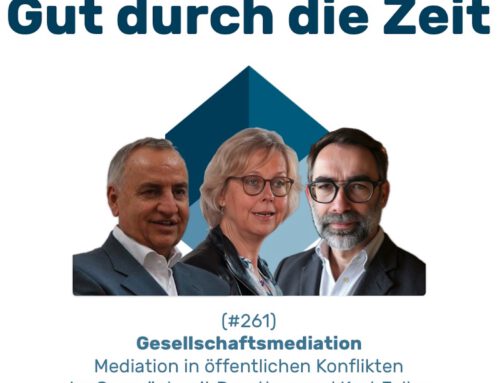INKOVEMA Podcast „Episodes of Mediation“
#10 EdM – Conflict escalation I – The four-stage model of linguistic escalation in conflicts according to Heinz Messmer
From the conflict episode to contradiction communication to accusation and threat communication
Episodes of mediation. The podcast on practical questions about mediation and conflict management.
Welcome to the EdM,
INKOVEMA's teaching stream on the practical issues of mediation and conflict management.
Practical situations in mediation, but also in coaching and conflict counselling, are explained, reflected upon and categorised.
That is Episode 10 – Conflict escalation I – The four-stage model of linguistic escalation according to Heinz Messmer. It shows the escalation that develops from an episode of conflict via communication of contradiction to communication of accusation and threat.
Heinz Messmer's model of conflict escalation is based on a system-theoretical understanding of conflicts. According to Luhmann, conflicts are communication of contradictions. Above all, this means that the contradiction that A has towards B „ must have been communicated. Only communicated contradictions are contradiction communication and therefore conflicts. Mere thoughts and feelings that have not yet found their way into the communication are not yet part of the communicative reality, so to speak.
The Four stages of conflict communication according to Messmer:
1st conflict episode (= one-off contradictory communication, not yet a stable conflict)
2. factual conflict (= stable communication of contradictions, topic-related incompatibilities are communicated)
3. relationship conflict (= communication of blame, attribution of responsibility, attribution of guilt)
4. power conflict (= threatening communication, asserting own claims to power, enemy images, final intentions – „enough is enough!“)
The model is problematic with regard to its sequential depiction of escalating conflicts, even though the parties to the conflict actually continue the characteristics of their early communication later on. Even the most quarrelsome parties can communicate objectively about certain differences at any time and a communicative foray into „escalating terrain“ may be a slip and a folly that will not happen again. Or more directly: there are slaps in the face in families that are not a harbinger of fatal family drama, but are themselves the entire drama, which is sometimes recounted years later in emotional attachment. That is part of the paradox of conflict.









Leave A Comment